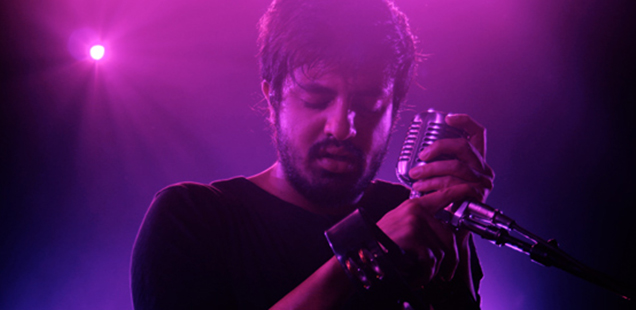Movie Review: Jude Law Hits Rock Bottom In ‘Dom Hemingway’

Richard Shepard (The Matador, The Hunting Party) straddles his new film of a recently paroled safecracker between the modern age and the bygone era of classic 1970’s crime stories. Heavily steeped in, and even more heavily influenced by, those gritty, darkly comedic cult classics — think Get Carter — Dom Hemingway is, above all, a vehicle for Jude Law.
If the story of the recently released Dom Hemingway (Law) trying to pull his life together after a twelve year stint in the slammer seems, if not uninspired, but almost routine by this point, it’s Law who’s the real draw. Stockier than usual with a set of yellowing teeth, a crooked nose, and a pair of mutton chops that would make Chester A. Arthur jealous, he also carries with him a severe anger management problem. Teaming up with his best friend Dickie (Richard E. Grant), he sets out for the south of France to meet up with his crime boss Mr. Fontaine (Demian Bichir), and to claim his reward for keeping his mouth shut. It’s there that everything begins to go wrong.
What Shepard really wants to prove is that the heart of the story is a father wanting to reunite with his estranged daughter. It’s true that Dom wants to reconnect with his now adult daughter Evelyn (Emilia Clarke), but much of the film is spent watching Dom get himself into ridiculous situations as Law spouts off monologues of witty banter. It’s all well written by Shepard and Law is able to transform himself into the character Shepard so clearly devised in his brain. But the problem is that Shepard doesn’t seem interested in anything besides the character of Dom. His friendship with Dickie, and Grant’s performance itself, is another winning aspect for the story, but while Shepard is able to set Dom up for something, he doesn’t seem so sure how he should end it.
Wanting to have his cake and eat it too, Shepard creates a clearly unsympathetic character that he wants the audience to empathize with anyway. He somewhat succeeds but once Dom goes on and on about how his life is devoid of any good luck, the rug of any realism is pulled out from under the story. Much of the film is Dom getting himself into terrible ordeals, usually at his own doing, — like a horrible car crash — and then miraculously coming out of them if not completely in great standing, at least with his life, which is what’s usually being threatened. Instead Shepard bows to Dom’s beliefs that his problems stem from his lack of luck — his terrible decisions including the big one to become a criminal don’t seem to count — and decides to end the film on a happy note out of nowhere.
If only Shepard had spent the time crafting the overall arc of Dom finding his way, especially his attempts to reconnect with Evelyn, as he did with Dom’s ramblings and scenes of decadence, Dom Hemingway would have been a gem in the rough. Instead, it treads a tired plot that brings nothing new to the genre of an over the hill criminal looking to turn his life around. And yet for all of its shortcomings, it truly does boast some mesmerizing scenes, memorable dialogue, and some of Jude Law’s best acting in some time. It’s not as smart as it thinks it is, but it does come pretty close.
Rating: 3 out of 5




